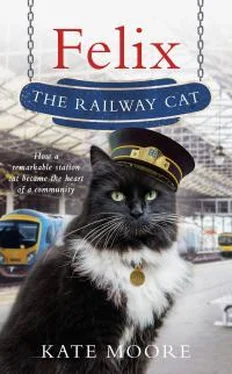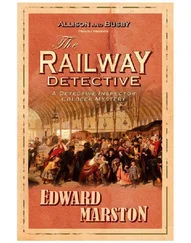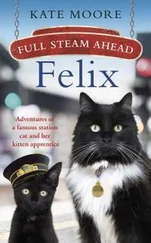Boxing Day was mostly spent with Felix gazing out at the garden through the tall French doors, miaowing every now and again as she stared morosely at the great outdoors. Jean felt a bit sorry for her in the end, so glum was her constant vigil. Felix seemed jealous of the neighbour’s tabby cats who tumbled in the garden, and of the robin and the wood pigeons who flew about the trees.
Even when it grew dark, Felix maintained her watch by the window. Jean had some solar-powered fairy lights wound round her trees, and after the sun had set they came to life automatically and twinkled in the darkness. Perhaps they reminded Felix of the fairy lights wrapped around the stately columns of her home. Perhaps she was missing it.
She was certainly pleased to be back when Jean opened up the carrier the following day and Felix scampered out. She sniffed all around the team leaders’ office and wandered over to Billy’s garden. She carefully traced the route they walked together for the security checks and careered around the car park. She paced up and down the platforms, on patrol. But the man she was looking for wasn’t there.
Billy was still not back at work.
27. The Hardest Goodbye
‘Are you coming down t’meeting today if you’re feeling all right?’ Angie Hunte asked her long-time colleague on the phone.
‘Maybe not today, Mrs H,’ Billy replied in a hoarse whisper. ‘But I’ll be back soon. Don’t you be messing about with any of my stuff, now! I know what you’re like.’
Angie hung up, smiling despite herself at Mr Grumpy’s words. She and Billy had worked together for so long now that they had the kind of friendship where they could rib each other and call each other out; Billy was forever telling her she’d messed up his recycling system by throwing something in the wrong bin, and she was forever telling him that he was in her office to hand over to her and not to inspect her rubbish!
Angie and Billy stayed in touch while he was off, and Angie kept him up to date with all the developments at the station, so that he’d be up to speed when he got back. The most significant of these was that Paul, the station manager, was moving on to pastures new; Andy Croughan would be fulfilling the role again until they found a permanent replacement.
So it was Andy that Billy telephoned when he had some news of his own to share. That sore throat of his wasn’t getting any better – and it wasn’t a cough or a cold or a minor infection.
It was cancer.
Andy felt stunned. Even though Billy had been off sick for a while now, Andy had been convinced he would be back to work soon. And Billy, too, had been similarly convinced. In fact, everyone at the station had been – for it had only been a month or so since they’d seen him and none of them thought it could be anything so serious.
After that phone call, things moved very quickly. It was an aggressive form of the disease, and Billy’s weight plummeted dramatically. His condition deteriorated so fast that Andy felt like he’d had no time to come to terms with the news of his colleague’s illness before he received another call, this time from Billy’s wife. She shared the news that suddenly, shockingly, on 31 March 2015, Billy had died.
Andy replaced the receiver slowly; his shock at the suddenness of Billy’s passing almost visceral. Billy was gone. It was up to Andy to tell the team.
He tried to find them one by one. The nature of the railway meant that the team were always moving around when on shift, as transient as the trains themselves: there was always a customer to be served or a train to be caught; it would have been impossible to have had one big meeting to break the sad news to them all. So that morning, on Wednesday 1 April 2015, Andy found himself standing on the front steps of the station, trying to catch the team as they came in for their shifts. Never had he seen so many faces fall, so many tears blinked back, so many murmured words about ‘waste’ and ‘loss’.
When Angie pulled up in the car park, she was already concerned. She’d tried phoning Billy and his wife, Val, to have a chat, but they hadn’t come to the phone. Something’s wrong , she had thought, as the telephone had rung on and on emptily in her ear, unanswered and unattended to.
She slammed her car door distractedly, thoughts full of Billy, and made her way to the station steps: the route she had walked so many times before with her colleague, as they handed over to each other from their shifts.
She almost stopped dead when she saw Andy standing on the steps. She knew, instantly, that something was wrong. She didn’t know it was Billy, but as Andy spotted her and walked over with a concerned look on his face, she knew she wasn’t going to like whatever it was he had to say.
Andy felt relieved, in a way, when he saw Angie standing at the bottom of the steps. He had wanted to catch her before she came into the station. He knew how close she and Billy had been, and he didn’t know how she would take it. He’d sensed, perhaps, that it was best not to tell her in front of the team.
He took her arm and led her to one side to break the news.
When you’ve worked with somebody for the amount of years that Angie and Billy had worked together – longer than some marriages, all told – and when you’ve laughed and joked and moaned and said a lot of things to each other that only that other person ever knows, it leaves a big, big hole when they die. Although Angie knew he was sick, seriously sick, she’d never really believed that Billy would leave them. Well, you just don’t think things like that. You put a brave face on, or even a grumpy face, just some face, whatever face you need to help you carry on, and then you graft and you continue and you get the job done. That’s what Billy had always done. The garden and the art display and the environmental innovations hadn’t come easy: he had grafted for them, just as he had done on the railway for the whole of his life.
Angie crumpled when she heard the news. That was what it was like. This strong woman, normally so bustling and busy, never fazed by anything, sank in on herself. So much so, she couldn’t do her shift. Like Billy, she couldn’t continue anymore. Not this time.
But, of course, in the end she had to carry on – without him. Maybe not that day, but in the days and weeks to follow, Angie and the rest of the team had to continue: making the announcements, checking the tickets, helping the customers, and much more. Their grief was bearable at home, but they found that as soon as they got past the ticket barriers, everything reminded them of Billy. His name was still on the rotas, his photo was still on the wall, his pigeon hole was still stuffed full of the memos he would never now read. And perhaps the biggest reminder of all was Felix.
She didn’t understand what had happened to him. No longer did the silver people carrier swing into the car park for her to sit upon when Billy’s shift came to an end. No matter how many times she weaved her way through the garden, Billy never once appeared in his overalls to dig amongst the soil, bending down to scratch behind her ears with a rough, weathered hand. There was no lap to sit on or ankles to follow around. There wasn’t even much that smelled of him because, this being a workplace, personal items were confined to drawers and lockers, and even a clever cat like Felix couldn’t unlock metal doors.
It wasn’t a nice time for anyone at the station, but it was Angie who took Billy’s loss hardest of all. She couldn’t help the depth of her grief, which was unexpected and unprepared for: the hot tears that pricked suddenly at her eyes, the way her voice might abruptly start to wobble. Yet, as a team leader, her colleagues looked to her for answers – and she had to give them. Regardless of what had happened, Angie’s job was to run things; that was what she was employed to do. When she left her office, she had to be ready with the solution to any problem thrown at her.
Читать дальше












